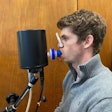
One out of six people with COPD who had no history of depression developed it for the first time during the early stages of the COVID-19 pandemic. For those with a history of depression pre-pandemic, half experienced a recurrence during the pandemic.
That’s according to a new study published in the International Journal of Chronic Obstructive Pulmonary Disease in mid-September.
Researchers examined a sample of 875 individuals with COPD from the Canadian Longitudinal Study on Aging, a national study of Canadian older adults. Using data from that study, researchers found 369 respondents with COPD who had a pre-pandemic history of depression, and 506 who had never experienced depression prior to the pandemic.
First author Aneisha Taunque, research assistant at the Institute for Life Course and Aging at the University of Toronto said the findings highlight the toll that the pandemic took on many individuals who had been free from depression prior to COVID-19.
“Our findings highlight the substantial burden of COVID-19 on those who were mentally healthy prior to the pandemic,” she said. “It is evident that the pandemic has had a detrimental impact on the mental health of many individuals, even those who had no lifetime history of depression.”
Co-author Grace Li, PhD candidate in the Sociology Department at the University of Victory, said the burden was even higher for those who had a history of depression prior to the pandemic.
“Older adults who have a history of depressive episodes are a highly vulnerable subset of the population, particularly those who faced numerous challenges with managing their chronic health conditions during the pandemic when access to regular health care was severely disrupted,” she said.
The study’s researchers highlighted several risk factors for both incident and recurrent depression among those with COPD, including loneliness, family conflict, and functional limitations.
“We found that experiencing functional limitations approximately doubled the risk of depression among older adults with COPD,” said co-author Ying Jiang, senior epidemiologist at the Public Health Agency of Canada. “Physical activity is integral for maintaining functional status and reducing functional limitations among COPD patients. However, many individuals with COPD are hesitant to engage in physical activity. Increases in time spent sedentary during periods of lockdown may have further ramifications for this population, potentially contributing to increases in depression.”























